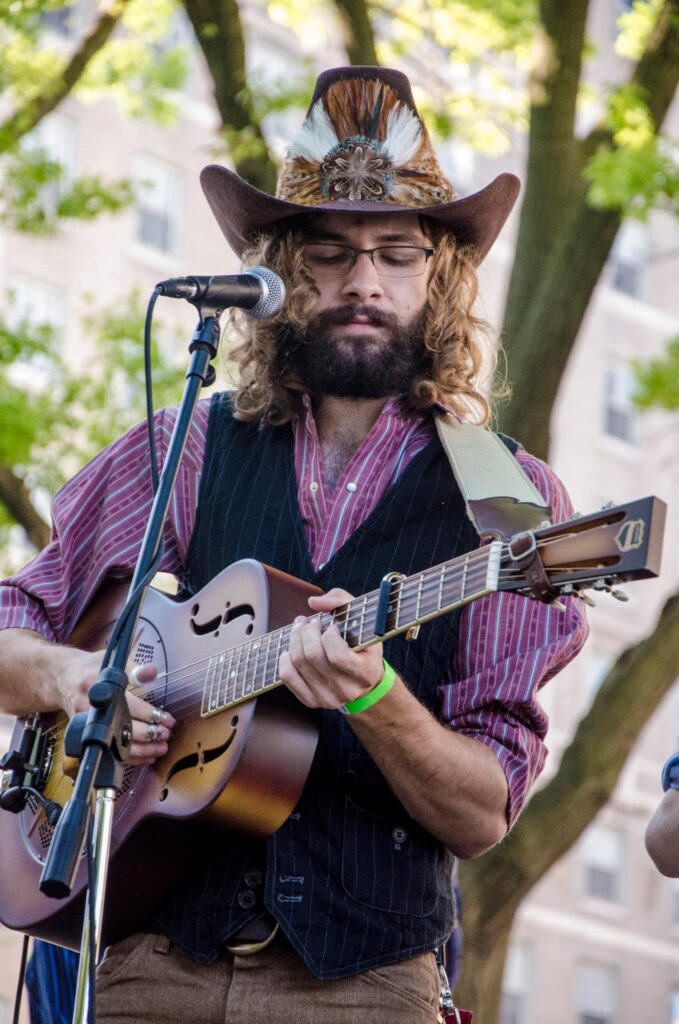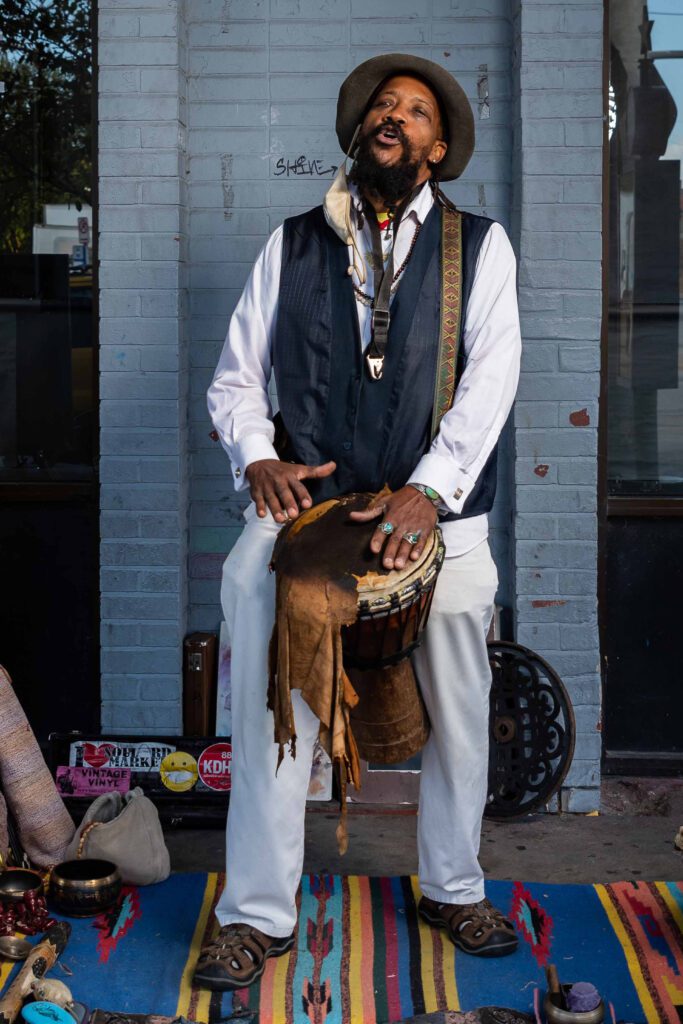St. Louis street performers have a long and proud history.
They enliven our public spaces and provide live entertainment that everyone can access and enjoy. And it’s a good way for musicians and other buskers to make some money.
VLAA is committed to supporting our region’s street performers. We’ve participated in two local lawsuits challenging their right to free expression. We published Know Your Rights PDF and a commonsense St. Louis Street Performers United Best Practices Guidelines PDF. We host the St. Louis Street Performers United Facebook community page and we distribute free St. Louis Street Performers United badges. To request a badge, contact us.
Fighting Back
Although the First Amendment protects street performance, both St. Louis City and University City have imposed unreasonable restrictions that were successfully challenged in court.
St. Louis City: In 2012, following numerous complaints about a drum line that was regularly performing in several neighborhoods, the cost of an annual permit was raised from $25 to $100. In addition, some performers seeking permits were required to “audition” for street department staff. Several performers thought the fee increase was excessive and that the audition requirement violated their First Amendment rights. We contacted our friends at the American Civil Liberties Union (ACLU). Thanks to legal action taken on behalf of two musicians, Nick Pence and Fred Walker, street performers are free to perform in the City without the burden of overly broad regulations or the obligation to purchase expensive permits.

Nick Pence
Photo by Lara Head
University City: Several street musicians and arts-friendly U City Loop business owners contacted us in 2019 to complain about police harassment. The musicians were being told to “move on” because it is “illegal” to perform on Delmar’s sidewalks — which seemed incongruous, given the Delmar Loop’s national reputation as a lively destination.
So we reached out to the new First Amendment Clinic at Washington University School of Law. The clinic and the ACLU filed suit on behalf of musicians Raven Wolf C. Felton Jennings II and Raymond Douglas, arguing that University City was routinely and unconstitutionally suppressing the public performance of live music.
In 2022, the U.S. District Court for the Eastern District of Missouri ruled that “the City’s policy of forbidding individuals engaged in speech or performance from remaining stationary on public sidewalks is a violation of the First Amendment and Due Process Clause.” The court also ruled that the City’s policy requiring a permit for musicians to play unamplified music on private property adjacent to public sidewalks is a violation of the First Amendment.
Going Forward: We are unaware of any street performer case in which the government prevailed. That’s because the First Amendment applies to artistic expression, verbal as well as non-verbal, just as it applies to political and other speech. It’s a shield that protects against government restriction or punishment of expression, particularly when the government discriminates on the basis of content. Simply put, a guitar player with just one chord has the same rights as acclaimed classical violinist Joshua Bell, who appeared incognito on a Metro platform in Washington, D.C. one cold January morning and played his heart out for tips.

Raven Wolf C. Felton Jennings II
Photo by Phillip Hamer
